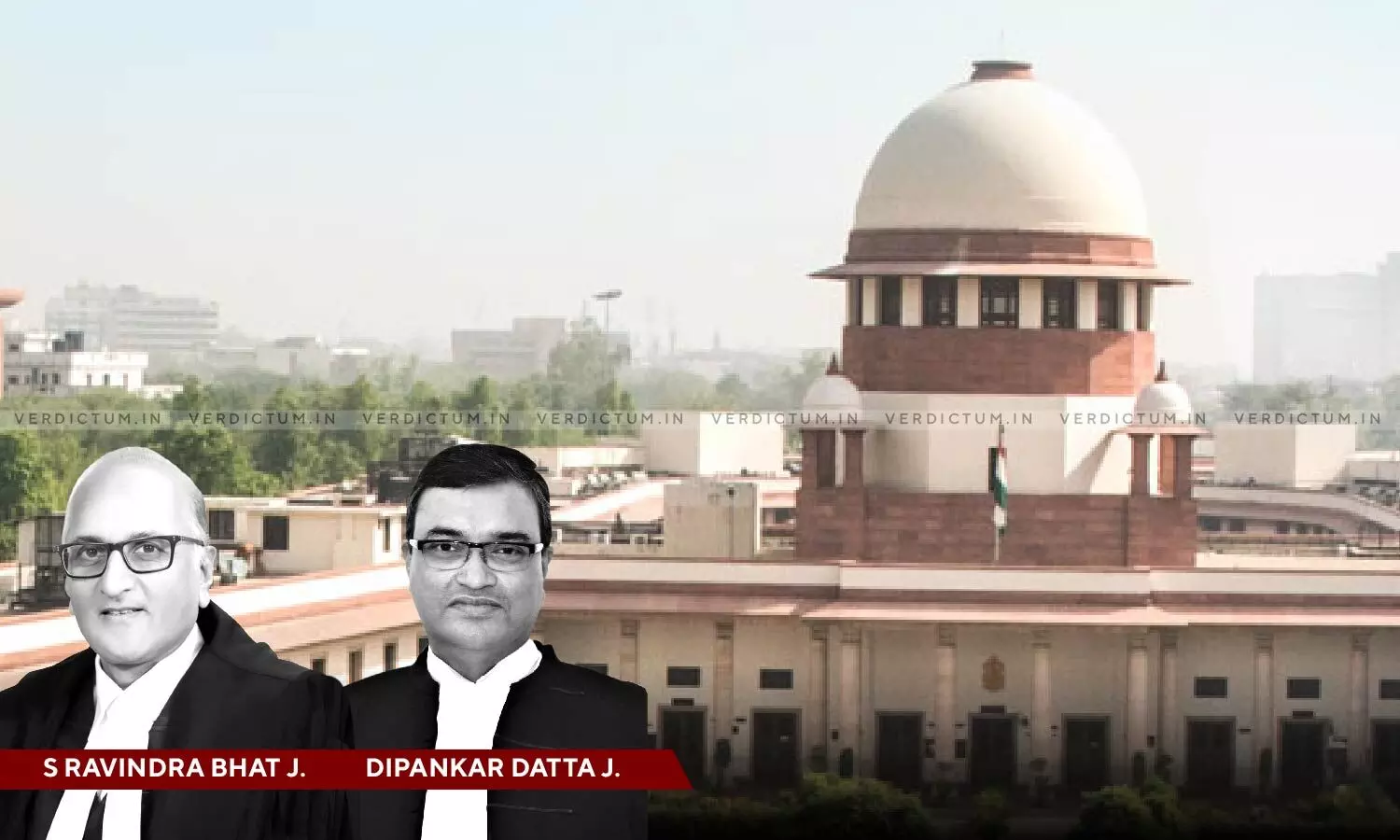
Expiry Of Leases By Efflux Of Time Or Valid Termination In Past Would Not Render Such Lessees As “Encroachers”: SC
 |
|A two-judge Bench of Justice S. Ravindra Bhat and Justice Dipankar Datta observed that the expiry of leases, or other arrangements, by efflux of time or their valid terminations, in the past, cannot be construed to mean that such lessees become “encroachers”.
Nor would past tenants whose possession is disputed, and eviction proceedings pending against them before a court, fit that description under Section 3(ee) of the Wakf Act, 1995, added the Bench.
Advocate Senthil Jagadeesan appeared for the Petitioner and Advocate Sayid Marzook Bafaki appeared for the Respondent.
Going by the background of the case, the Appellants urged that one P.M. Mammu Haji leased two shop rooms long ago in 1916, before the coming into force of the Wakf Act. “Norman Printing Bureau”, a concern of Achuthan Nair was functioning in the said premises, wherein a partnership firm was later created, with one P.V. Sami as a partner. The firm continued all these years and continues now. The Bureau published ‘Norman Almanac’ containing astronomical data used in astrology. The Respondents alleged that P.M. Mammu Haji created a wakf in 1951.
After his death, a suit was filed by his legal heirs to remove the trustee. In that suit, the court found that Mammu Haji created a private Trust, by removing the existing trustee. In between, the rent for the premises was increased, and a Rent Enhancement Deed was executed between the parties. The Appellants noticed uncertainty on account of lack of clarity about ownership of the premises and filed an interpleader suit, where the court decreed the suit and directed the Appellants to pay rent to the third defendant. Thereafter, the CEO of the Board initiated several proceedings against the Appellants for eviction, which was decreed.
However, in revision proceedings, the Kerala High Court ruled that the Wakf Tribunal lacked jurisdiction and the Appellants could be evicted only through a civil proceeding before a competent civil court. During the pendency of the suit, the Wakf Act, 1995, was amended. While so, a criminal complaint was filed before the Court of the Judicial Magistrate, First Class alleging that the Appellants were encroachers and seeking their prosecution under Section 52A. The Appellants alleged that they continued to pay the rent, in accordance with the decree of the District Judge, and therefore, preferred a petition under Section 482 of the CrPC before the Kerala High Court alleging that they could not be treated as “encroachers” and were lawful occupants, whose eviction was sought, in civil proceedings, and seeking quashing of those proceedings. The High Court however, rejected the petition.
After considering the submissions, the Apex Court observed that there is no controversy that Section 52A is a penal provision; a person proceeded against faces the prospect, in the event the charges are proven, of a prison sentence of up to two years; the offence is cognisable and non-bailable, notwithstanding anything to the contrary in CrPC.
Finding that the Appellant came into possession even before the wakf was created; before even the Wakf Act, 1954 was enacted, the Apex Court noticed that in an interpleader suit, the Appellants were permitted to pay rents to the third defendant in the suit, and they were holding the premises when the amendment came into force; indeed, a proceeding purporting to evict them was unsuccessfully initiated before the amendment.
The Bench went on to observe an injunction against punishing anyone for conduct that was not an offence when it was committed, by an enactment, which creates one, subsequently, with retrospective effect¸ is enacted in the Constitution as a Fundamental Right under Article 20(1).
“The plain text of that provision forbids such an interpretation, and the authorities on that aspect clearly indicate that giving effect to a penal statute so as to cover past acts is a proscribed action in law”, added the Bench.
Hence, the Apex Court allowed the appeal and concluded that Section 52A cannot cover cases where leases of wakf properties had expired in the past and where the tenant or lessee was, at the time the amendment of 2013 came into force, in physical possession and facing civil proceedings for eviction.
Cause Title: P.V. Nidhish and Ors. v. Kerala State Waqf Board and Anr.